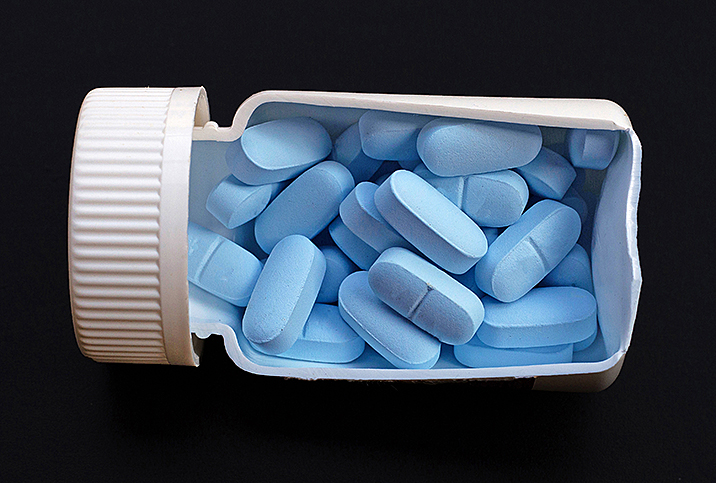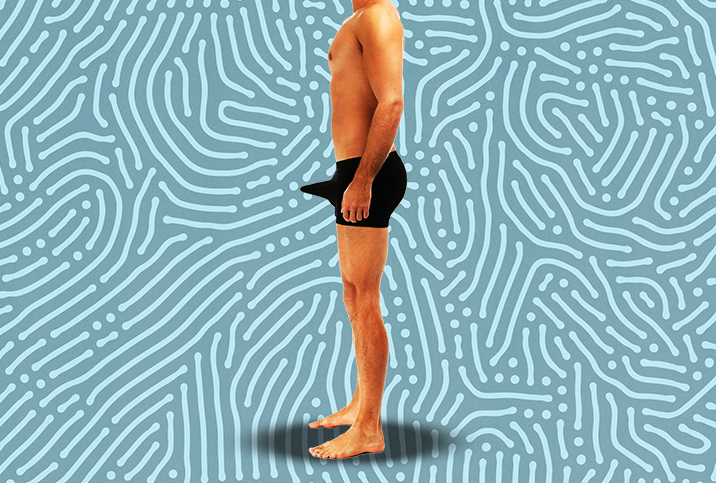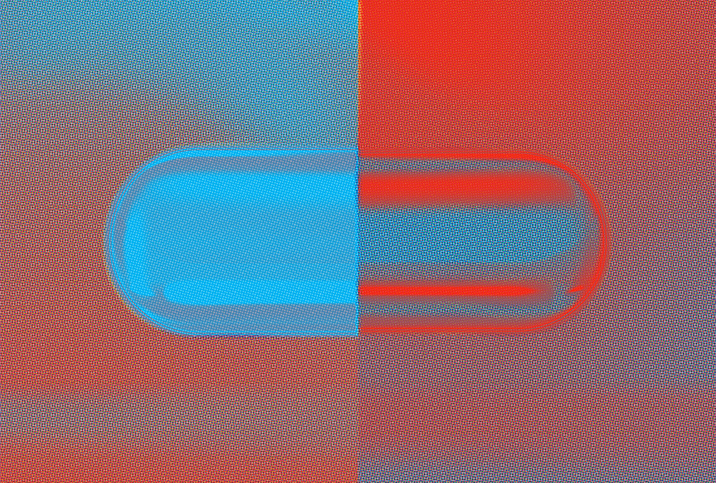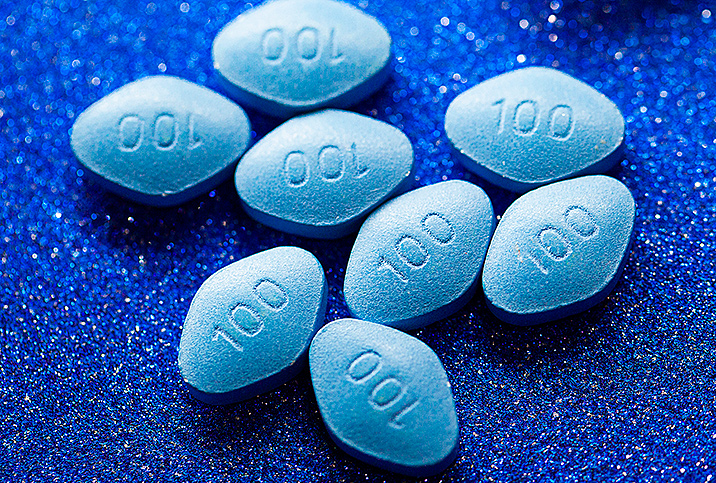Four-Hour Erections Are No Joke

We've all heard the snarky jokes about the erectile dysfunction medication warnings: "Hey, if I had an erection lasting more than four hours, maybe my partner wouldn't have left me!"
But seriously, priapism—a persistent, often painful erection lasting longer than four hours without sexual stimulation—is a dangerous condition that's considered a medical emergency. It can lead to loss of sensation in the penis, tissue damage, erectile dysfunction (ED) and other long-term complications that aren't funny at all.
But as accustomed as we are to thinking of a four-hour boner as a jokey consequence of too much ED medication, priapism can have several different causes.
What is priapism?
First, we should talk about what priapism is and how it manifests. It's defined as an erection lasting more than four hours, but there are two distinct types.
Ischemic priapism, or low-flow priapism, is the more common of the two. It's the result of blood not being able to leave the penis and is typified by:
- An erection lasting more than four hours that's not related to sexual stimulation
- A rigid penile shaft, but with the glans (head) not being as hard
- Pain that grows progressively worse
Nonischemic priapism is also known as high-flow priapism. It occurs when blood flow to the penis isn't regulated properly. Generally speaking, it can be differentiated from ischemic priapism as the less painful of the two conditions. Also, the penis is erect but the shaft usually isn't fully rigid.
Erections typically occur due to physical or psychological stimulation. This stimulation causes smooth muscle in the penis to relax and blood to flow into the corpora cavernosa, the spongy tubes in the penis that fill with blood, causing the penis to get erect.
Normally, after the stimulation ends, the veins that had closed down to trap the blood open up again to let the blood flow out, and the penis goes flaccid.
However, when priapism occurs, something goes awry with the blood, blood flow, smooth muscle or nerves of the genital area that alters normal functioning. The result is an erection that doesn't go away and soon turns painful.
What causes priapism?
Doctors can't always point to a specific cause of every case of priapism, but several possible causes include:
Blood disorders—Sickle cell anemia, leukemia and other disorders of the blood cells, such as thalassemia and multiple myeloma, can cause priapism.
Prescription medications including:
- Antidepressants (Prozac, Wellbutrin)
- Alpha blockers (prazosin, terazosin)
- Meds for anxiety and psychotic disorders (hydroxyzine, Risperdal, Zyprexa, lithium, clozapine)
- Attention-deficit/hyperactivity disorder meds (atomoxetine)
- Blood thinners (warfarin, heparin)
- Hormones (testosterone, gonadotropin-releasing hormone)
- ED meds that are injected directly into the penis (alprostadil, papaverine, phentolamine)
Drugs and alcohol—Cocaine, methamphetamine (crystal meth), alcohol and even marijuana have been known to cause ischemic priapism.
Injury or trauma—Nonischemic priapism or excessive blood flow is often associated with injury or trauma to the penis, pelvis or the perineum (the area between the scrotum and anus).
Less common causes include:
- Toxins in certain spider and scorpion bites
- Gout, amyloidosis or other metabolic disorders
- Spinal cord injury
- Syphilis
- Cancer of the penis
Conclusions
Regardless of what induces it, priapism is a serious condition. Blood trapped in the penis for an extended time is deprived of oxygen, damaging the tissue and resulting in erectile dysfunction, loss of nerve function and more.
No joke, if your erection won't go away after a few hours and especially after sexual stimulation is over, don't screw around—go to the emergency room or see a doctor right away.
You may be treated with ice packs, drug injections directly into the penis, surgery such as tying off the artery that delivers blood to the penis, or aspiration, which involves using a needle to draw out the blood directly.
But as scary as all those options sound, they're infinitely preferable to permanently losing your ability to get an erection or losing sensation in your penis for the rest of your life.


















